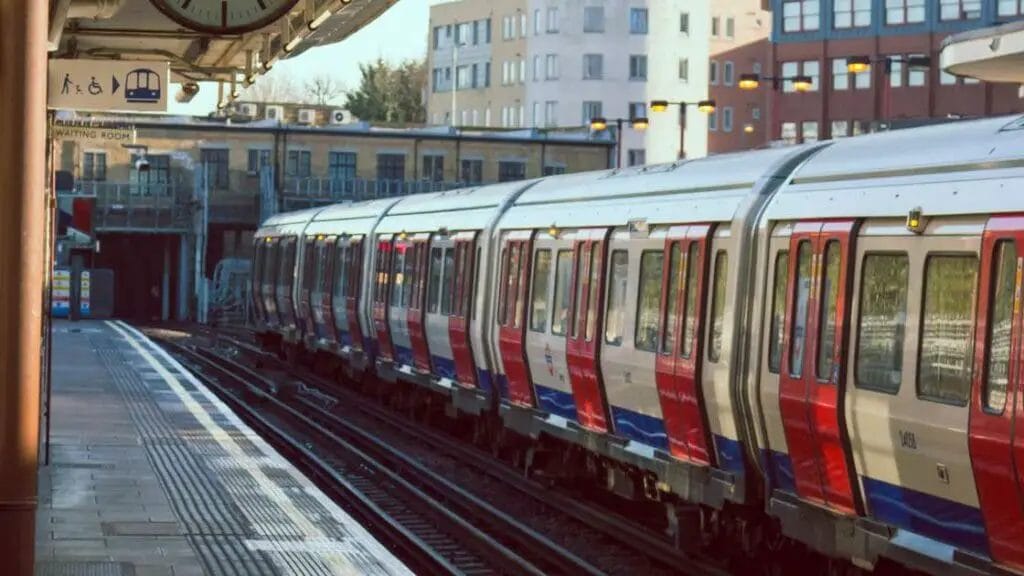Do you typically develop a headache when you start driving down a busy and noisy road? And, do you constantly get disturbed by the never-ending symphony of honking horns, screeching brakes, and revving engines when you get home?

Living in a bustling city often means wrestling with the relentless cacophony of traffic noise, day in and day out every day of your life.
But guess what? There are ways to cope with this urban soundtrack and regain your peace of mind!
In this article, we will explore effective strategies to help you get used to traffic noise and reclaim your sanity.
From simple lifestyle adjustments to soundproofing techniques, we will provide you with practical tips to minimize the impact of traffic noise on your daily life.
Whether you’re a city dweller or a recent transplant to an urban environment, our expert advice will help you adapt and make peace with the bustling soundscape.
Let’s dive in and discover how you can find tranquility amidst the chaos of traffic noise.

Understanding the Impact of Traffic Noise on Mental and Physical Health
Living in a noisy environment can have a profound impact on your overall well-being.
Numerous studies have shown the negative effects of prolonged exposure to traffic noise, including increased stress levels, sleep disturbances, and even cardiovascular problems.
The constant barrage of noise can disrupt your concentration, hinder your ability to relax, and leave you feeling drained and irritable.
It’s important to recognize the toll that traffic noise can take on your mental and physical health so that you can take proactive steps to mitigate its effects.
One of the key reasons why traffic noise is so detrimental to our well-being is its ability to trigger the body’s stress response.
When we are exposed to constant noise, our bodies release stress hormones such as cortisol, which can have a detrimental effect on our health over time.
In addition to the physiological effects, traffic noise can also impact our mental health.
Studies have shown a link between prolonged exposure to noise pollution and an increased risk of anxiety, depression, and other mental health disorders.
Understanding these risks is the first step towards finding effective solutions to combat traffic noise and protect your well-being.
To continue reading, click here.
Recognizing the Common Challenges of Living in a Noisy Environment
Living in a noisy environment presents a unique set of challenges that can make it difficult to find peace and tranquility.
One of the most common challenges is the constant disruption of sleep.
Traffic and train noise can make it hard to fall asleep, stay asleep, and wake up feeling refreshed.
Lack of quality sleep can have a profound impact on your physical and mental health, so it’s important to address this issue head-on.
Another challenge of living in a noisy environment is the impact on concentration and productivity.
Whether you’re trying to work from home or simply enjoy a quiet moment with a book, the constant background noise can be incredibly distracting.
This can lead to decreased focus, decreased productivity, and increased feelings of frustration.
Additionally, the inability to find a quiet space can make it challenging to relax and unwind after a long day.
Furthermore, noise pollution can affect our relationships and social interactions.
It can make it difficult to have meaningful conversations, enjoy outdoor activities, or simply spend quality time with loved ones.
The constant need to raise your voice to be heard can be exhausting and can strain relationships over time.
Recognizing and acknowledging these challenges is the first step toward finding effective strategies to overcome them.

Exploring Strategies to Mitigate Traffic Noise at Home
Your home should be a sanctuary where you can escape from the hustle and bustle of the outside world.
However, when traffic noise infiltrates your living space, it can feel like there’s no escape.
Fortunately, there are several strategies you can employ to minimize the impact of traffic noise and create a calmer, more peaceful environment.
One of the most effective ways to reduce traffic noise at home is through soundproofing techniques. By insulating your walls, doors, and windows, you can significantly reduce the amount of noise that enters your living space.
Installing double-glazed windows or using soundproof curtains can make a world of difference in creating a quieter indoor environment.
Additionally, sealing any gaps or cracks in your doors and windows can help prevent noise from seeping in.
Another strategy to consider is the use of white noise machines or sound masking devices. These devices emit a constant sound that helps to drown out unwanted noise.
By creating consistent background noise, white noise machines can help mask the sounds of traffic and provide a more peaceful atmosphere.
They can be particularly useful during sleep, as they can help to block out disruptive sounds and promote a more restful night’s sleep.
To continue reading, click here.